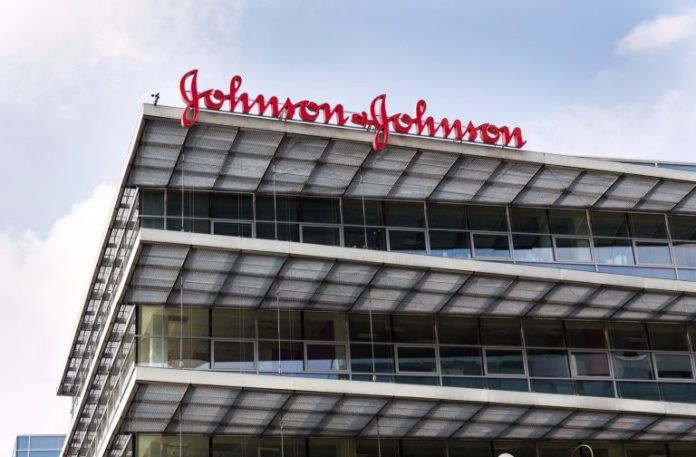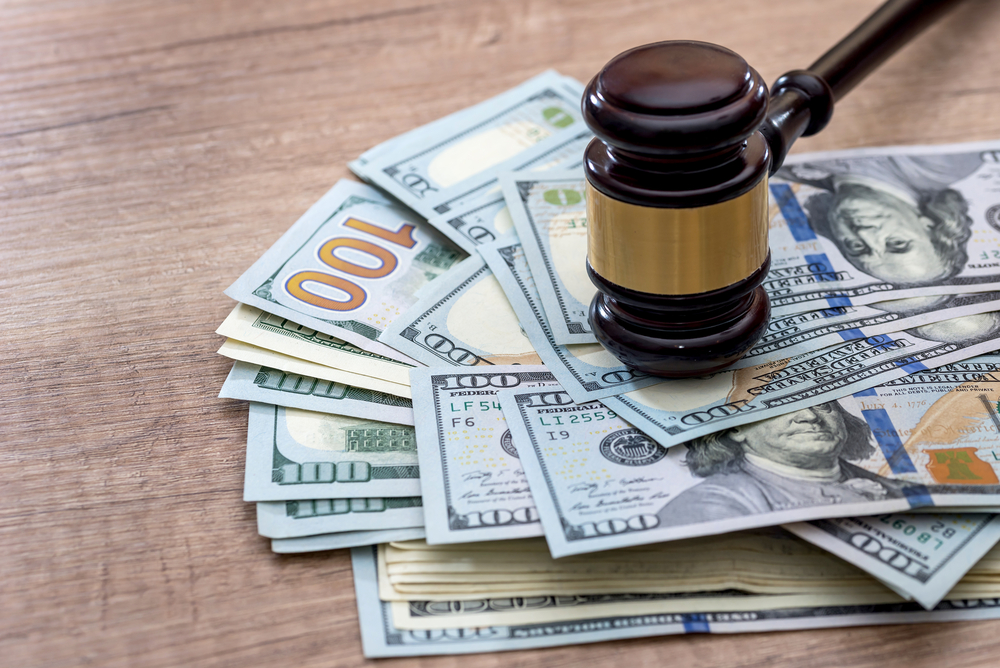
It’s been said that those who protest the loudest are often the ones who are guilty, and when it comes to government and their pet corporations, things are no different. No surprise, then, that the blustery moralizing — and violent state force brought to bear against businesses — are most intense where the money and power stand to be lost, as in the case of the Silk Road, and most weak and permissive where embedded, state-friendly corporations like Johnson & Johnson can basically get away with murder.
Also Read: The White House Just Blamed Bitcoin for America’s Opiate Crisis
Opioid Kingpins
The state of Oklahoma won $572 million in a lawsuit against American pharmaceutical giant Johnson & Johnson Monday, for their alleged reckless contribution to the state’s opioid crisis. Prosecutors labeled the company a “public nuisance,” and an opioid “kingpin.” The mega corporation’s aggressive marketing tactics downplayed the very real risks of extremely addictive opioid painkillers, according to the state of Oklahoma. This isn’t Johnson & Johnson’s first legal rodeo, either. From arsenic-poisoned Tylenol, to bribes and kickbacks for doctors worldwide, downplaying dangerous side effects, and peddling allegedly cancer-causing baby powder, the company is no stranger to legal attack.
Of course, their legal representation vehemently denied the charges, citing what they view as Johnson & Johnson’s negligible share of the U.S. painkiller market as a whole. The company aims to postpone payment during an appeal procedure, which some reports say could last until 2021. The lawsuit was seeking $17 billion in damages, with settlements reached with Purdue Pharma ($270 million) and Teva Pharmaceutical ($85 million), earlier this year. Though the awarded amount is nowhere near the prosecutor’s goal, it remains a landmark ruling nonetheless, being the first time a major pharmaceutical company has been found legally liable for America’s opioid problem.
This verdict comes at a timely juncture where the cryptospace is concerned. News.bitcoin.com reported just days ago on recently issued White House advisories, which attempt to pin blame for the very same crisis on cryptocurrencies like bitcoin, bitcoin cash, ether, and monero.
Consensual vs. Non-Consensual Business
There are rigorous licensing requirements for selling drugs legally in the United States. These measures are taken to ensure safety and quality, ostensibly. Without approval from the state, nobody can sell anything. With legal approval from the state, anybody can sell anything — even dangerously addictive painkillers via aggressive marketing campaigns and bribes. Organizations that have the power to green light or reject new pharmaceuticals become very important, then, to companies wishing to make a killing in the industry.
In Johnson and Johnson’s case, around $6 million is spent on lobbying annually, influencing everything from legal policy to drug studies. 37 members of the U.S. Congress actually own shares in the pharmaceutical juggernaut. Some of the legislation Johnson & Johnson pays big bucks to back is aimed at making it harder to sue big corporations. For example, the company is a member of the American Tort Reform Association (ATRA), which championed the Class Action Fairness Act of 2005, a bill that drew fire from critics for placing unfair restrictions on individuals seeking legal recourse against corporations via class action lawsuits.
With this iron-clad shield of legal protections in place, and deep pocketsful of politicians and alphabet agencies paid for in USD — a money that everyone is forced to use under threat of violence — the meaning of a non-consensual business becomes clear. Don’t reach for the cannabis for pain relief–that could land you in prison. Don’t sue the providers of the only legal options available, that’s been made near impossible. Instead, fall victim to purposefully relaxed drug laws, misleading advertising, and FDA/DEA propaganda. In Oklahoma’s case, the systematically eroded caution about opioids contributed to the 6,000 related deaths since 2000, according to attorney general Mike Hunter.
The Silk Road
If Johnson & Johnson’s preferred method of force-backed monopoly is non-consensual, then the model of the now defunct Silk Road would be the opposite. Using the same cryptocurrency the White House has now pinned as responsible for opioid trafficking and Fentanyl deaths, Ross Ulbricht’s darknet marketplace sold anything and everything, drug-wise, legal or not. This causes many to take worried pause, viewing the endeavor as an illicit or malevolent enterprise, but things are almost never what they seem on surface.
Unlike Johnson & Johnson, the community on Silk Road had ethical rules about its drug sales. As International Business Times reported back in 2011:
But even as an illegal drug store, Silk Road has its own ethical standards which is stated in terms of service: anything who’s purpose is to harm or defraud, such as stolen credit cards, assassinations, and weapons of mass destruction, will not be sold through the network.
There are still those who talk about Ulbricht’s supposed hand in the murder-for-hire plots, but these charges were never brought to bear, and later dropped, instead being mentioned in passing to prejudice the outcome of the trial. Nobody was ever killed because of the debacle, either. Many suspect foul play on the part of the state, and indeed this idea is bolstered by computer forensics testimony that doesn’t add up. All in all, there are 7 people who are reported to have died from Silk Road-related overdoses, who presumably ordered the products voluntarily, with full disclosure of the potential risks. This is a far cry from the big pharma racket on the legal side of the tracks, where disclosure is actively obfuscated, and safer, alternative options are punished by jail time.
Legal Immunity for Criminals, Life in Prison for Heroes
According to the judge, “Among other things, they [Johnson & Johnson] sent sales representatives into Oklahoma doctors’ offices to deliver misleading messages, they disseminated misleading pamphlets, coupons, and other printed materials for patients and doctors, and they misleadingly advertised their drugs over the internet.” It was further found by the ruling that the company had created a problem where there hadn’t been one, in encouraging the over-prescription of opioids for chronic pain.
Though Johnson & Johnson may have to pay $572 million if they lose their appeal, that’s really just a chink in the armor for a company that pulled in $81.6 billion in 2018, with a net worth at press time of $337.1 billion. Though their reckless practices have arguably contributed to the deaths of thousands in the United States, and they consistently seek to insulate themselves unfairly within the legal system, the company remains “legitimate” in the eyes of the government at large.
Ross Ulbricht, however, has had his life taken from him, simply for providing a voluntary marketplace and earnestly trying to not mislead or harm anyone. When it comes to real culpability here, people on the street seem to be getting wise to Johnson & Johnson’s racket. When it comes to the U.S. Federal Government taking issue with consensual exchange and a young kid making millions on the darknet from drug sales, many think the state doth protest too much.
What are your thoughts on the Johnson & Johnson ruling? Let us know in the comments section below.
Images courtesy of Shutterstock.
Did you know you can buy and sell BCH privately using our noncustodial, peer-to-peer Local Bitcoin Cash trading platform? The Local.Bitcoin.com marketplace has thousands of participants from all around the world trading BCH right now. And if you need a bitcoin wallet to securely store your coins, you can download one from us here.
The post Mega Drug Pushers Johnson & Johnson Get Away While Peaceful Silk Road Is Destroyed appeared first on Bitcoin News.

Bitcoin.com is author of this content, TheBitcoinNews.com is is not responsible for the content of external sites.
Our Social Networks: Facebook Instagram Pinterest Reddit Telegram Twitter Youtube













